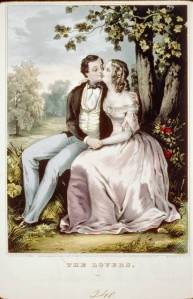 Advice is something we often receive freely even if we want it or not. Most people readily hand it over and wish nothing more in return except perhaps to be acknowledged that they are “correct”. It can be solicited without our intention such as through one’s appearance; “Your hair would look better combed,” or it can open up a world of advice by way of a simple question such as…. “Do you think I could wear this to the office?”
Advice is something we often receive freely even if we want it or not. Most people readily hand it over and wish nothing more in return except perhaps to be acknowledged that they are “correct”. It can be solicited without our intention such as through one’s appearance; “Your hair would look better combed,” or it can open up a world of advice by way of a simple question such as…. “Do you think I could wear this to the office?”
Advice is given in many forms. It can be written, spoken, and even offered as a gesture. For example rather than saying “my advice to you is ….” one may receive a “thumbs down”.
Those seeking advice have relied upon the famous such as Anne Landers and Dear Abby, the curious such as palm readers, and even the impersonal such as horoscopes. Yet no matter the advice one receives, no matter the way it is given, ultimately it becomes the decision of the seeker to make, and for that we bid “good luck!”
 Today’s blog introduces a lesser known English political journalist, the esteemed thinker: William Cobbett (1763-1835). Born in Farnham, Surrey County England, this author, satirist, journalist, and editor may not be a household name today, however it is to be noted that he was a champion of the people; fighting for reforms and exposing corruption in both the Church and Parliament during 18th and 19th century England. Through his writing in pamphlets, newspapers, and books he called for radical reform regarding poor working conditions for laborers and farmers.
Today’s blog introduces a lesser known English political journalist, the esteemed thinker: William Cobbett (1763-1835). Born in Farnham, Surrey County England, this author, satirist, journalist, and editor may not be a household name today, however it is to be noted that he was a champion of the people; fighting for reforms and exposing corruption in both the Church and Parliament during 18th and 19th century England. Through his writing in pamphlets, newspapers, and books he called for radical reform regarding poor working conditions for laborers and farmers.
Cobbett’s newspaper journal, The Political Register, was widely read by the working class people. As a result of his public outcries, he became an enemy of the government and fled to the United States in 1817 rather than being arrested for “sedition”. Here he lived on Long Island and wrote his most famous work, Grammar of the English language. Upon his return to England, in 1831 he continues to publish his radical newspaper and though running for the House of Commons, is defeated.
And so, we will now turn over the post to William Cobbett. The selection takes a bit of a turn from his political activism. From his series of Letters Advice to Young Men, and (incidentally) to Young Woman, you may be surprised to see that he too has some thoughts for those seeking love.
“… There are two descriptions of Lovers on whom all advice would be wasted; namely, those in whose minds passion so wholly overpowers reason as to deprive the party of his sober senses. Few people are entitled to more compassion than young men thus affected: it is a species of insanity that assails them; and, when it produces self-destruction, which it does in England more frequently than in all the other countries in the world put together, the mortal remains of the sufferer ought to be dealt with in as tender a manner as that of which the most merciful construction of the law will allow.
The other description of lovers, with whom it is useless to reason, are those who love according to the rules of arithmetic, or who measure their matrimonial expectations by the chain of the land-surveyor. These are not love and marriage; they are bargain and sale. Young men will naturally, and almost necessarily, fix their choice on young women in their own rank in life; because from habit and intercourse they will know them best. But, if the length of the girl’s purse, present or contingent, be a consideration with the man, or the length of his purse, present or contingent, be a consideration with her, it is an affair of bargain and sale…
Let me now turn from these two descriptions of lovers, with whom it is useless to reason, and address myself to you, my reader, whom I suppose to be a real lover, but not so smitten as to be bereft of your reason. You should never forget, that marriage, which is a state that every young person ought to have in view, is a thing to last for life; and that, generally speaking, it is to make life happy, or miserable; for, though a man may bring his mind to something nearly a state of indifference, even that is misery, except with those who can hardly be reckoned amongst sensitive beings. Marriage brings numerous cares, which are amply compensated by the more numerous delights which are their companions. But to have the delights, as well as the cares, the choice of the partner must be fortunate…”
First image: The lovers: New York : Published by N. Currier, c1846 lithograph, hand-colored.
Second image: National Portrait Gallery UK Painted circa 1831 by artist George Cooke (1781-1834)